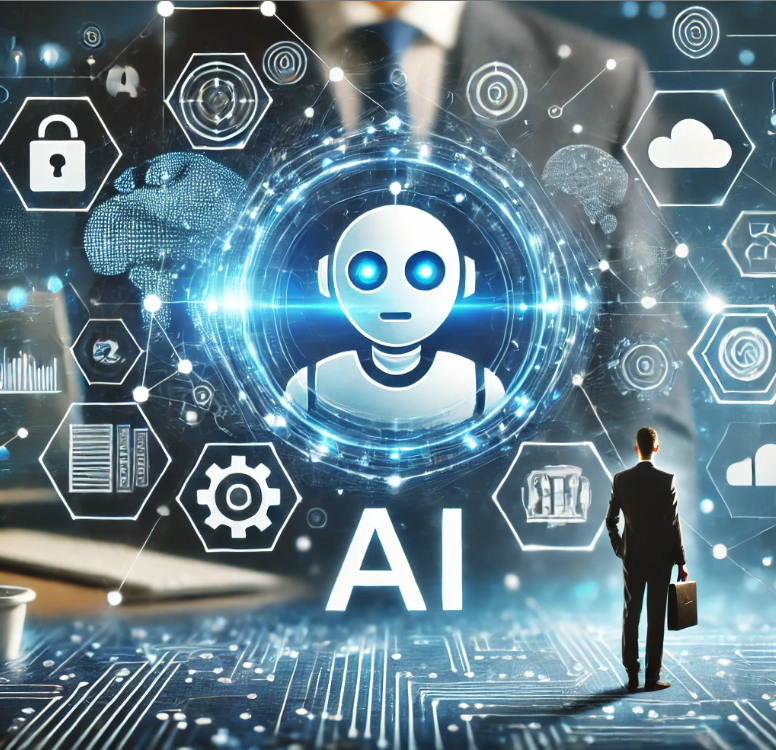The world of technology is quick-paced and mobile apps have become an integral part of our daily lives. Thanks to them, we can be socially connected, get our tasks done, and stay entertained. However, what if these apps were more than just directives?
Imagine that they could think, learn, and adapt to what we want. Devices lead our digital interactions, an era marked by how we use the Internet of Things (IoT). And they change everything.
The Rise of AI in Mobile Apps
Smart Daily Planning with Mobile Apps
Waking up in the morning and your mobile apps have already decided how you’ll be spending the day? They know your calendar, have discovered the shortest path to work, and even offer you breakfast ideas depending on what ingredients are in the refrigerator.
It might as well be a setup from some Sci-Fi flick. But it is genuine, and AI has entirely fueled this.
Intuitive Assistance in Mobile Apps
While AI in mobile apps aims to simplify things, it makes them smarter and more intuitive than ever before.
For example, voice assistants such as Siri and Google Assistant can understand the intent behind the question you just asked. Or how about Netflix; they know exactly which show you should watch next.
Wait, these are just some of the everyday AI applications that make our lives somewhat easier and a whole lot cooler.
For further insights, read this article on the transformative impact of AI in mobile apps.
The Intersection of AI and User Experience in Mobile Apps
It turns out that AI in mobile apps is more than a self-acting process; it is an opportunity to
enrich customer experience above and beyond human imagination.
Thanks to artificial intelligence, mobile apps can now make tailored interactions that change in response to what the user does at any given time.
Hence, it seems that engagement and contentment have never before been achieved as the app becomes like an appendage reflecting personal desires and usual actions.
Benefits of Using AI in Mobile App Development
Personalized and Engaging Experiences
For instance, AI-driven fitness apps that adapt their recommendations based on real-time
performance data can make workouts more effective and enjoyable.
Similarly, personalized content suggestions on streaming platforms not only keep users
entertained but also help them discover new interests and hobbies they might not have
encountered otherwise.
To learn more about how emerging trends in digital marketing will affect mobile apps,
check out our article on Top Digital Marketing Trends for 2024.
Personalization at Its Best
AI behaves differently in mobile apps, making them more preferable as app relationships are personalized for every person.
In this case, artificial intelligence gains knowledge from what you do in your spare time, as well as what you prefer when it comes to various things.
In fitness, for instance, some programs will change depending on how well you are doing or
where you intend it to take you.
Additionally, they can propose something that seems interesting considering where you have checked online for them before.
This way, each user feels special while using them since they seem custom-built with him/her in mind.
User Engagement
Mobile apps using AI are great at engaging people. What if you have a personal helper always available to give an immediate response to your questions irrespective of the time?
Such helps to make your application more useful and at the same time fosters the bond between the user and his or her provider.
What is more, AI analytics enable software developers to grasp what their customers prefer or do not, leading to ongoing improvements and enhanced user comfort.
Future Technologies and AI in Mobile Apps
Looking ahead, Artificial Intelligence (AI) is integrated with other emergent technologies like
Augmented Reality (AR), and the Internet of Things (IoT), will most likely reshape the mobile app ecosystem.
Combining AR applied by way of artificial intelligence might offer such full emersion experiences as virtual try-ons in case of retail purchase or hi-tech navigations provided through usage of smart glasses.
At the same time, IoT devices can use AI-based mobile applications to create smart environments in which everything from health monitors to home appliances communicates and adjusts to user needs immediately.
Moreover, these technologies will develop into more complex applications and intuitive
than we have seen before, thus making our digital interactions ever more constant for specific situations.
To learn more about how AI is used to design intuitive interfaces, explore our article
on How AI is Used in Web Design
Does the Game Need to Be Modified in Different Fields?
AI is a game changer in numerous sectors due to mobile apps.
- Using AI in healthcare can assist in identifying medical conditions, keeping track of patient’s well-being, and providing virtual advice. In healthcare, AI-powered apps can help diagnose conditions, monitor patient health, and provide virtual consultations.
- Financial apps apply AI to expose scams besides giving customized financial guidelines. Financial apps use AI to detect fraud and offer personalized financial advice.
- Even in entertainment, AI is creating more immersive experiences by suggesting content based on your likes and dislikes. As a result of its ability to recommend content that resonates with customers’ preferences or tastes, the entertainment sector is becoming more adaptive thanks to AI. AI is making waves in many industries through mobile apps.
For an overview of AI’s role in various industries, you might find this article on AI’s industry impact insightful.
The Magic of Machine Learning in Mobile Apps
At the heart of AI is Machine Learning (ML), which allows mobile apps to accommodate alteration and refinement through time.
These are the kinds of innovations that fuel facial recognition, language translation, and predictive text among others.
Among the examples include Google Photos, which employs ML to facilitate faster picture finding, and Duolingo, which uses ML to create personalized lessons that fit the learner’s pace of learning new languages, making it more effective and fun.
Future Challenges and Prospects
Bringing AI into mobile apps is not easy. The importance of ensuring that personal information is kept private and secure cannot be overemphasized.
Furthermore, sophisticated AI models demand vast expertise and resources. That said, the future looks promising. We should anticipate more innovative and intelligent apps due to constant developments in AI technology.
The merging of AI and other emerging technologies. New technologies, such as Augmented
Reality (AR) and the Internet of Things (IoT), will give us more options, thus making them function even better when combined.
For more insights on how digital marketing trends are evolving and their impact on technology, check out our article on Top Digital Marketing Trends for 2024.
Conclusion
Mobile apps are going through a revolutionary phase thanks to AI which makes them more intelligent and interactive.
The future promises to bring an improved quality of life due to AI overlay on mobile gadgets, which implies greater convenience and productivity.
The wilderness of AI apps is not as promising as that of the mobile; it’s yesterday’s news, but
today has shaped and changed how humans relate to their environment through labor and in general.







